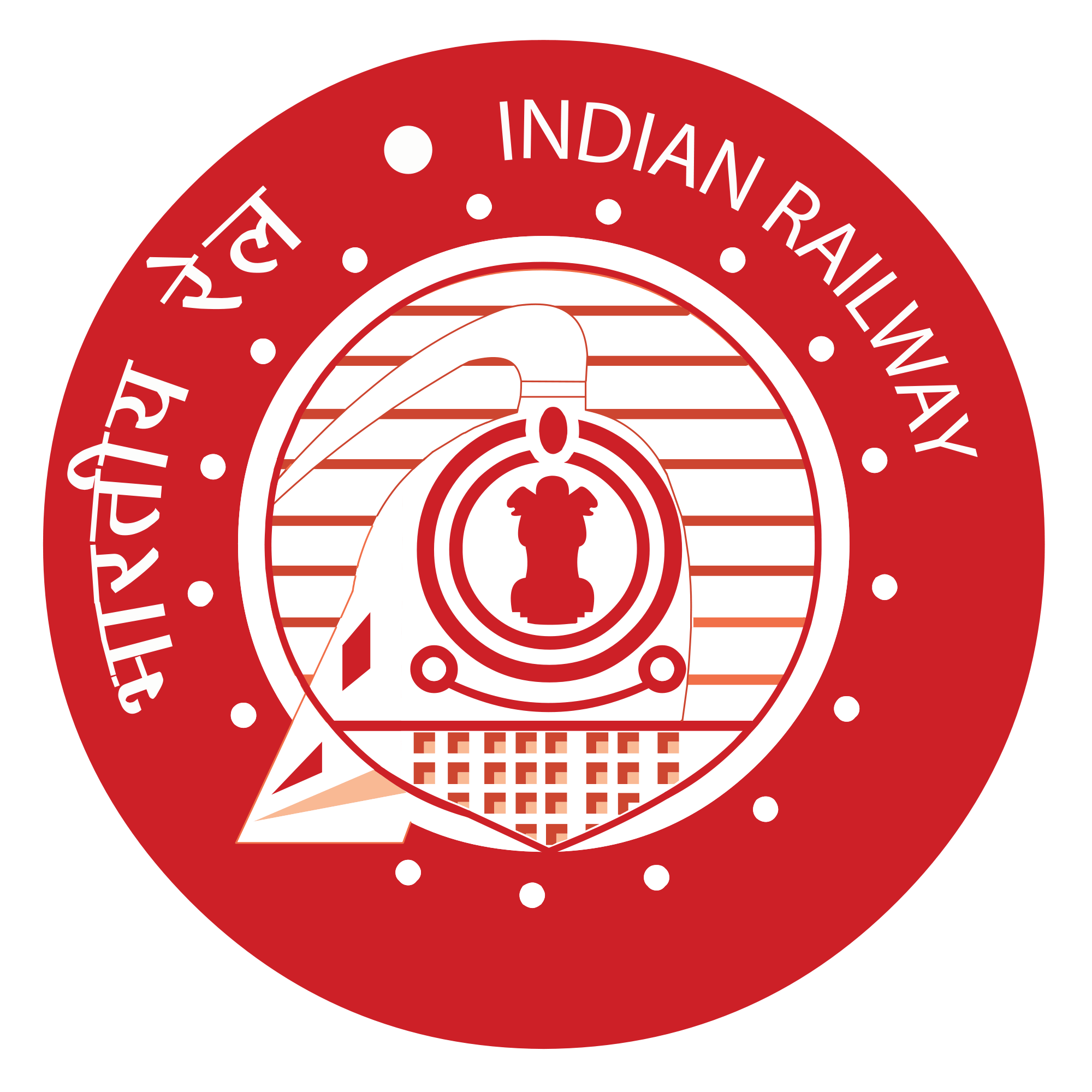
RRB JE Syllabus - Railway Recruitment Junior Engineer 2022
The Railway Recruitment Board (RRB) conducts the Junior Engineer (JE) recruitment every year to select eligible candidates for the posts of Junior Engineer, Chemical & Metallurgical Assistant (CMA), and Depot Material Superintendent (DMS) in different departments of the Indian Railways. The RRB JE notification 2022 might be released soon so the candidates must begin their exam preparation. To help aspirants begin their exam preparation, here are the details about RRB JE Syllabus and exam pattern.
RRB JE 2022 Exam Pattern
Before checking out the syllabus, let’s have a look at the RRB Junior Engineer exam pattern. It will give a better idea about which sections are covered in the exam. The RRB JE exam comprises of the following stages:
- CBT First Stage
- CBT Second Stage
- Document Verification/ Medical Examination
RRB JE Exam Pattern - CBT First Stage
All the questions will be of the multiple-choice type and the duration of the exam will be 90 minutes.
|
Sections/ Subjects |
Number of Questions |
|
Mathematics |
30 |
|
General Intelligence & Reasoning |
25 |
|
General Awareness |
15 |
|
General Science |
30 |
|
TOTAL |
100 |
Scroll left or right to view full table
RRB JE Exam Pattern - CBT Second Stage
All the sections will have objective type questions and the duration of the exam will be 120 minutes.
|
Sections/ Subjects |
Number of Questions |
|
General Awareness |
15 |
|
Physics & Chemistry |
15 |
|
Basics of Computers and Applications |
10 |
|
Basics of Environment and Pollution control |
10 |
|
Technical Abilities |
100 |
|
TOTAL |
150 |
Scroll left or right to view full table
RRB JE Syllabus 2022
Now, let’s start with the RRB JE Syllabus for both stages.
CBT First Stage Syllabus
Mathematics
Number Systems, Decimals, BODMAS, Fractions, Square Root, Ratio and Proportion, LCM and HCF, Profit and Loss, Percentages, Time and Work, Time and Distance, Mensuration, Simple and Compound Interest, Trigonometry, Algebra, Geometry, Elementary Statistics, Age Calculations, Pipes & Cistern, Calendar & Clock.
General Intelligence and Reasoning
Analogies, Alphabetical and Number Series, Mathematical Operations, Coding and Decoding, Relationships, Syllogism, Jumbling, Data Interpretation and Sufficiency, Venn Diagram, Conclusions and Decision Making, Analytical Reasoning, Similarities and Differences, Directions, Classification, Statement – Arguments and Assumptions etc.
General Awareness
Knowledge of Current Affairs, Indian Economy, Culture and History of India including freedom struggle, Indian Geography, Indian Polity and Constitution, Environmental issues concerning India and the World, General scientific and technological developments, Sports, etc.
General Science
Chemistry, Physics, and Life Sciences (up to CBSE Board Class 10th).
CBT Second Stage Syllabus
General Awareness
Knowledge of Current affairs, Indian geography, culture and history of India including freedom struggle, Indian Polity and constitution, Indian Economy, Environmental issues concerning India and the World, Sports, General scientific and technological developments etc.
Physics and Chemistry
CBSE Syllabus as per Class 10th.
Basics of Computers and Applications
Architecture of Computers, Storage devices, Input and Output devices, Operating System like Windows, Networking, Linux, Unix, MS Office, Various Data Representation, Internet and Email, Computer Virus, Websites & Web Browsers.
Basics of Environment and Pollution Control
Basics of Environment, Adverse Effect of Environmental Pollution and Control Strategies, Air, Water and Noise Pollution - Effect and Control; Global Warming, Ozone Depletion, Waste Management, Acid Rain.
Technical Abilities
Electronics Engineering
Electronic Devices, Energy Bands, Wireless Communication, Signal and Systems
Carrier Transport in Silicon: Drift Current, Diffusion Current, Mobility, and Resistivity, Generation and Recombination of Carriers, Tunnel, Junctions, Control System, Diodes, EMFT, Communication, Basics of Signal and Systems, Analog and Digital Circuits.
Electrical Engineering
Machines, Basics of Circuit and Power Electronics, Electrical and Electronic Measurements, Analog and Digital Electronics, Power and Control Systems, Signals and Systems, Circuits and Measurement Systems.
Computer Engineering
Computer Fundamentals, Languages, Database, MS Office, Software Engineering
DBMS, Algorithms, Information Systems, Operating Systems, Web Technology and Programming, Computer Networks, Network Communication, System Programming.
Civil Engineering
Estimating, General Civil Engineering, Costing, Valuation, Construction or Structure Engineering and Drawing, Soil Mechanics, Building Materials, Structural Analysis, Concrete Structures, Mechanics, Steel Structures, Water Requirements, Construction, Highway Planning, Hydraulics Hydrology, Projections, Surveying, Traffic Engineering, Errors and Adjustments, Environmental Engineering, Curves, Coordinate System, Measurements of Distance and Directions.
Instrumentation & Measurement Engineering
Basics of Measurement Systems, Transducers, Mechanical Measurement, Circuits, Analog or Digital Electronics, Process Instrumentation, Industrial Instrumentation.
Information Technology
Computer Fundamentals and Organization, Operating Systems, Information Systems, MS Offices, C, C++, and Java Language, System Programming, DBMS, Software Engineering, Web Technology and Programming, SAD, UNIX, Data and Network Communication.
Mechanical Engineering
Strength of Materials, Heat Transfer, Fluid Mechanics, Theory of Machines, Engineering Mechanics, Kinematics of Machine, Thermodynamics, Machining and Machine Tool Operations, Power Engineering, Casting, Stream Tables, Thermodynamics Cycles, IC Engine Cycles, Metrology and Inspection.
Chemical Engineering
Basic Concepts of Fuel, Applied Chemistry, Thermodynamics, Computers, Polymers, Material Science, Instrumentation and Measurement, Environment and Pollution Control.
RRB JE Exam Preparation Tips
Now that you know the exam pattern and syllabus, start your RRB JE preparation following these tips:
- After analysing the syllabus, make a timetable including time for all the sections. Keep breaks between the sessions.
- Solve as many sample papers and previous years’ question papers as you can. Solving previous years papers provide an idea about the type of questions, difficulty level of questions, and help in analysing the preparation level.
- Appear for mock tests to work on your speed, accuracy, and time management.
- Keep revising. Revision is the best for consistency and remembering things.
We hope the article will help you with your exam preparation for the RRB JE exam. After qualifying both the stages, shortlisted candidates are called for document verification and medical examination.

0 Comments